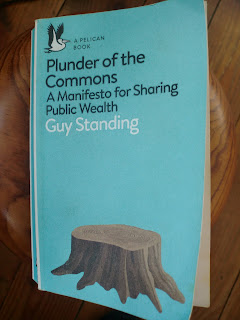"Dara thought about the lines,thin as mist, between possible and impossible, between real and not real, between here and now and there and then."
Couldn`t happen of course: 21st century boy meets Stone Age girl. Or could it? Depends if you can believe in those thin lines and the feasibility of occasionally slipping across them, backwards and forwards from one to the other and back again.
The strength of The Way To The Impossible Island by Sophie Kirtley is that you absolutely come to believe in the plausibility of such a thing - disbelief not so much suspended as discarded altogether for the duration of the book.
Dara is frustrated by a chronic illness that has kept his life "on hold" until he`s had his Big Operation, Mothgirl by the idea that at twelve-summers-old she will soon be expected to exchange her "wild, fast-hearted hunting days" with her wolf, By-My-Side, for "woman-days only, slow and dull as mud, filled only with making nutcakes and scraping deerskins and smoking meat upon the fire."
For both of them, the somewhat daunting and mysterious Lathrin Island, exerts a pull - Dara imagining rowing out to it when he`s had his operation and is fully fit, Mothgirl wondering if it`s where her long-lost brother is.
When Mothgirl runs from her home to escape being forced into domesticity and marriage to the son of the odious Vulture and Dara breaks away to escape the devastation and anger he feels at having his operation postponed again, their timelines collide and they end up making the perilous journey across to the island together in a leaky boat.
It is on the island that the adventure gathers pace. Having mourned together the apparent loss of Mothgirl`s wolf companion, they find signs which indicate her brother is, or has been, there and come to believe that Vulture is pursuing them. They learn to communicate with each other, to work together to survive, both finding skills and strengths they didn`t know they had. Perhaps most telling of all they come to understand that "normal" - or "norm-ill" as Mothgirl hears it - might not be for either of them, that there is always room for difference.
The interactions between Mothgirl and Dara are often humorous as they try to understand each other. The story gallops along apace with plenty of cliff-hangers at the end of chapters which mean you have to turn the page and find out what happens next. The conclusion is suitably uplifting as both our heroes have not only survived all sorts of challenges but learnt, as Dara muses, that "maybe there was more to real life than he ever could plan for. Good stuff. Bad stuff. Strange, amazing, scary stuff. No -one ever knew. There was no map. there were no answers."
Not a bad "life-lesson" and the thing that stories can teach so well.








